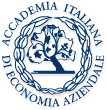Nuovi fermenti di sviluppo sostenibile nel turismo: l'esempio dell'“albergo diffuso”. Tra borghi storici, residenze d'epoca e antichi casali rurali
In the last two decades the development of tourism has shown ambiguities and contradictions as of sustainable development and social responsibility concerns. The discussion, however, bring about a more general issue such as innovation. As of hotels, in fact, that is particularly relevant, as they do have a remarkable impact on the territory, under different points of view.
New trends in consumers’ behavior and new organizational models for service firms are the evidence of an increasing attention to sustainable development. In Italy too some innovative tourist firms are paying great attention to the territory.
Aim of this paper, then, is to analyze the so called “albergo diffuso” as a new and original model of hotel hospitality. The method of our analysis focuses the correlation between sustainable development and the co-evolutionary nature of the firm-environment relationship. As of this aspect, we emphasize the importance of systemic adaptation to the environment and corporate social responsibility as well as the time factor in its meaning of “time-knowledge” binomial.
Aim of this study is to verify whether and how the model of “albergo diffuso” could be a good example of territory promotion in the perspective of sustainable development and related problems.
The results of our research could be interesting at both theoretical and practical level, for both policy and decision makers.




